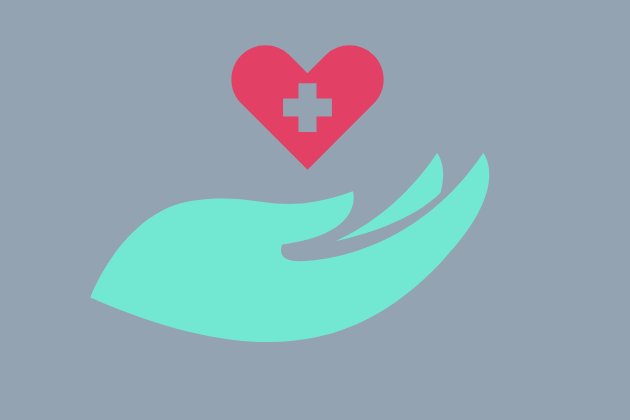
If the info you’re finding online informs the choices you make about your health, body, and relationships, it’s important to know that the information you’re getting is reliable, as well as sex-positive, inclusive, and accurate.
Information On Pregnancy Options Or Abortion
There is a lot of disinformation about abortion coming from people and organizations with a political goal to restrict access to abortion and deter people from choosing to have an abortion. Many anti-choice organizations are non-profits with reputable-sounding names and professional-looking websites so it can be hard to identify them - this includes crisis pregnancy centers (CPCs).
Crisis Pregnancy Centers (CPCs)
CPCs are anti-choice organizations, most of which are religiously affiliated, that can look like a clinic or a community center. CPCs typically offer services like pregnancy tests or sometimes resources like diapers or baby clothes alongside counseling with an anti-choice message. Some of them even offer clinical services like free ultrasounds and consultations with medical professionals. All of them operate with the goal of dissuading and discouraging people from getting abortions.
Here are some red flags hinting that your information might be coming from an anti-choice website:
- Abortion is either not mentioned as an option or it is framed as a negative option rather than a neutral option among other possible decisions. For example, providing misinformation about abortion carrying higher risk of consequences on your physical and mental health.
- The information frames abortion as a morally bad choice and shames people for considering an abortion.
- The stories are hand-picked to create a sweeping inaccurate conclusion that people who choose to carry an unplanned pregnancy feel very happy about their decision and those who chose to have an abortion experience feelings of regret, sadness, and pain.
The Abortion Rights Coalition of Canada keeps a list of anti-choice organization and Crisis Preganency Centres, to access these lists, click here.
For a list of credible and reliable sexual and reproductive health organizations and clinics, click here.
You can also call or text our Access Line to get support in finding another clinic or relevant service near you.
Reliability And Quality Of Information
Here are some questions you can consider about a resource to see if the information is reliable to you, in addition to being inclusive, sex-positive, and pro-choice.
- What is the resource’s purpose?
- Is it to inform, entertain or persuade, sell something, satirize or make a joke?
- Who is the intended audience (who is the website for)?
- Who made the resource?
- Is a creator’s real name listed? Is the resource sponsored or hosted by an organization? Can you follow-up with someone directly if you have more questions or a complaint?
- What does an online search for the organization tell you about the creator(s)?
- Are there good reasons to think the creator(s) are experts on the topic? Are there good reasons to think the organization that created it is an authority and a reliable source?
- Is there any reason to think the creator(s) may be biased in a way that makes them less reliable?
- When was it made?
- Do they list dates of when an article was last reviewed or updated?
- Does it cite sources or explain their methodology?
- If the website includes information based in science or data, do they link you to their sources of information? If it's original research, do they explain how they came to their conclusions?
- Who are the external sources they're linking to? Are they using data from provincial, territorial, or federal health authorities in Canada?
- All creators have a bias. But the above questions help make it easier to identify the purpose/source of a creator’s bias and give you context on if the resource is reliable or relevant for you.
Here’s an article that provides more info on how to find reliable health information.
Language
How a site uses language can be a clue to if it is reliable, unbiased, or promoting a certain option or idea. This includes using broad judgmental statements or trying to convince you towards specific decisions.
Health information should be presented in a way that is accepting, respectful, and inclusive. Language shouldn’t shame or convince you into making certain decisions about your health, body, or relationships. The content should not blame people for individual choices and where possible, should make reference to factors that contribute to or affect health, such as income, or race, or gender inequity.
The goal of a website that focuses on health, including sexual and reproductive health, should be to empower you by providing clear, verifiable health information with a range of unbiased options so that you can make informed decisions that are right for you.
Sites That Are Selling You Something
Some websites that sell products may also appear to provide unbiased health information (e.g., pharmaceutical companies, sex stores). This can also include influencers and bloggers who are paid to promote products or services.
Here is a list of questions to help you determine whether the website you are looking at has your best interest in mind or may be biased:
- Is the website or individual trying to sell you a product? Are they financially benefiting from sales? Is this clearly stated?
- Does the information appear balanced or does it favour a specific product they are selling?
- Does the website require you to provide personal information, like your name or e-mail address, to access the information on the site?
Websites focused on a particular product can be a great place to start to find information. However, the goal of this content is often to get people to use or buy that particular product. Researching and reading other sources of information can give you a better understanding of all your options.
Recognizing Facts Vs. Opinions
Opinions are not inherently good or bad and some can definitely help inform and support your decision making process. Blogs, think pieces, or articles can help rethink an issue, educate on a topic, make you feel understood, or help understand the perspectives of others. However, a lot of sites may pass off opinions as reliable health information.
When reading an opinion piece, here’s some questions to keep in mind:
- If the piece includes health information, is it reliable and accurate (using the tips above)?
- Do they make sweeping conclusions based on anecdotes or through hand-picked individual stories? If yes, it may be trying to impose a certain value or push towards specific choices or behaviours.
- Does it include fear-based messaging that tells you how you should feel about something, what your level of comfort should be, or what the right thing to do is, regardless of who you are or your circumstances?
Sites that lay out information neutrally and provide lots of options can give you the space to decide what the right decision is for you.
